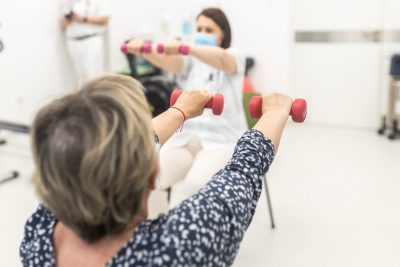Public information was released on the novel coronavirus by Semmelweis University. The document, issued by Dr. Béla Merkely, Rector, discusses among others the similarities and differences between the flu and the coronavirus and lists the simple preventive and defensive strategies.
Ladies and gentlemen!
Due to the international epidemiological situation caused by the novel coronavirus (SARS-CoV-2), I will provide you with the most important information.
The spread of SARS-CoV-2 is similar to that of the flu. We have a lot of experience and knowledge about the flu, and we are now getting to know the novel coronavirus infections. It is the first epidemic that the whole world follows minute by minute. This is very useful because it teaches us how to prepare for viral infections in the future. On the other hand, such an intense attention can exacerbate the problem. Current data show that the novel coronavirus is dangerous mainly to the elderly, whereas this year’s flu rather affects the younger population. People suffering from serious illnesses or conditions, such as those who had an organ transplant or are being treated with cancer, are also at risk.
Unlike in case of the flu, there is no vaccination or medication against the novel coronavirus. However, we should act the same way we do in case of a flu epidemic, which is happening now. This means following simple preventive and defensive rules:
- Wash hands thoroughly and frequently with soap and warm water.
- There is no need for healthy people to wear a face mask.
- Air the room as often as possible.
- Avoid people who cough and have a fever.
- If you have a fever, cold, cough, stay home until you feel better and protect your elderly relatives by avoiding them during this time.
- Do not cough into the palm of your hand, but use a disposable tissue instead. Dispose of the used tissue in the rubbish bin.
- Seek medical assistance if you develop severe symptoms.
If you develop symptoms of sudden acute respiratory infection (fever, cough, shortness of breath), you are suspected of coronavirus only in case you have been in contact with a patient infected with coronavirus in the past 14 days or if you had been in a place 14 days prior to the appearance of the symptoms, where spread of coronavirus is suspected. Currently, there is no confirmed coronavirus patient in Hungary.
If you develop acute respiratory symptoms but none of the above conditions apply to you, you are not suspected of coronavirus infection. In this case, we advise you to stay at home until the symptoms diminish.
However, if a reasonable suspicion arises based on the above that you might be infected by the coronavirus, we ask that you stay at home and call your GP or the emergency room in your area immediately and follow the doctor’s instructions. Specialists at the National Public Health Center can also provide information on the new coronavirus 24/7 at any time free of charge on +36 80 277455 or +36 80 277456.
Budapest, 1st March 2020
Dr. Béla Merkely
Rector of Semmelweis University
How to handrub with alcohol based formulation (WHO)
Handwashing in 6 steps (Budapest Főváros Kormányhivatala, WHO)


